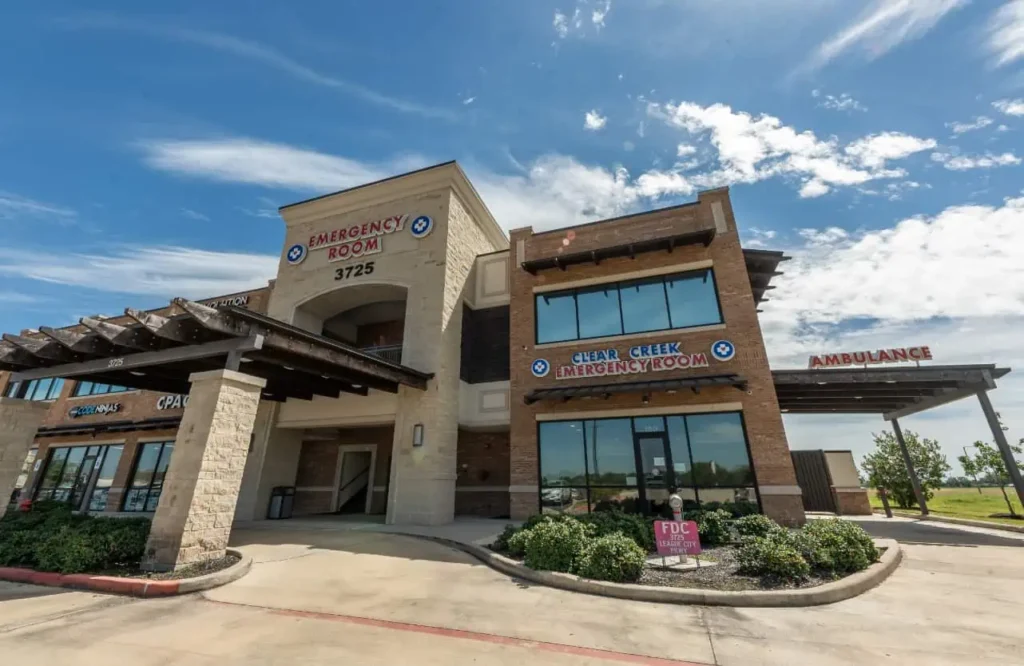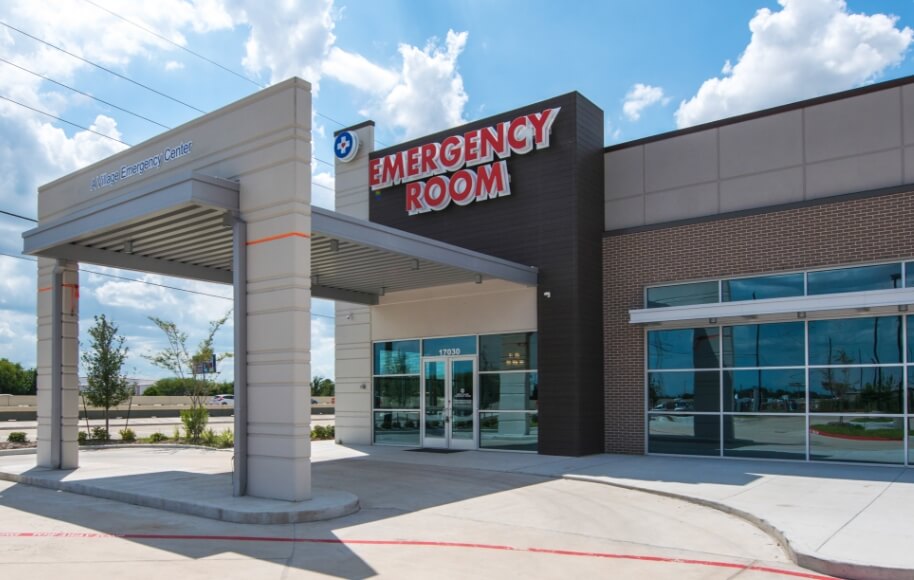Emergency Room Locations

Clear Creek / League City Emergency Center
Located on East League City Parkway near Clear Creek ISD Education Village, Clear Creek ER has the charm of a small town clinic but the equipment and expertise of Houston’s finest hospital. No matter your emergency, Clear Creek ER is ready to serve you.
Jersey Village Emergency Center
We’re excited to be opening a new Village ER location in Jersey Village. As a patient at our ER, you are always welcome and will never be turned away. Since emergency medical conditions do not follow a set time frame, our Village ER will stay open 24 hours a day, 7 days a week, even on holidays. We gladly welcome the Jersey Village community to be part of our family and to come to us with any minor or major medical concerns.

